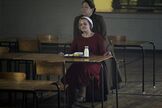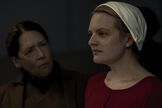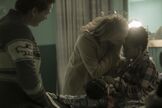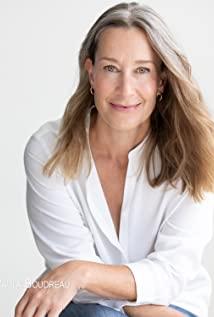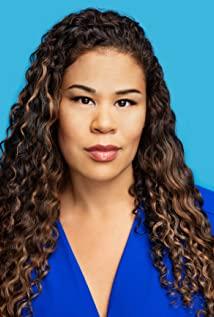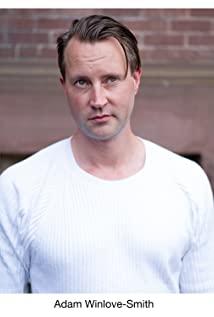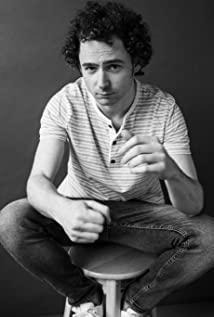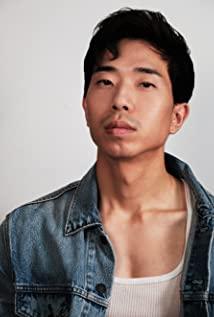This sentence sums up the main content of the play. The whole show is depressing, gray, full of violence and horror, and the depressed people can't breathe. Except for a small number of men, everyone was enslaved.
The ladies who seem to be high above have lost their names and the right to read. They have completely become men's vassals and fertility efforts, and have been turned into marionettes by the curse of infertility. They no longer have all the power in the workplace, and they no longer have the power to call the shots in the political arena. Ironically, the protagonist, Mrs. Waterfod, turned out to be a feminist writer. The patriarchal society of Gilead turned them all into staunch advocates and remaining slaves. True, they are not happy. They fell into the abyss of a patriarchal society from a modern society where women's rights are still developing. Without children, they will have nothing. When Mrs. Waterfod kneeled reverently in front of the woman's pregnancy test stick, the woman also knelt in front of the fish tank and cried, and I saw the pain and hatred in the eyes of both of them. What a powerful and independent woman Mrs Waterfod used to be, she even set Gilead's basic focus on her own. However, because of this, she also lost everything, including her name. As hateful as she is, seeing the pain she suffers (though she deserves it), I can't hate her.
moira finally escaped to Canada in episode ten. When I saw that she was ready to give up her life in a brothel, and when I saw that she needed the heroine to encourage her, I was not disappointed. But after all, this is reasonable. I was equally happy to see her dressed as a boy and driving with a knife. moira, she is the rebellious soul in this show. She is the only spark in this dark world. Without her, the show will be completely obliterated by the darkness, and there will be no hope.
The heroine, needless to say about her acting skills. Just wanted to say that in this drama, I like her. I love it. Smart, thoughtful, kind but not stupid, courageous, vulnerable, dark, and even a junior. But these so-called black spots of hers are just trivial things in the play, and they can't hide her light in the slightest. In the ninth episode, the scene where she saw her daughter in the car was heart-wrenching. I hope she can live, find a daughter and a husband, and live together.
Of course, some of the other people on the show gave me different thoughts. The new ofglen warns the heroine: This is the best life she has ever lived, and others are very kind to her when she has food and clothing (of course, no one in the play dares to show that she is not kind to others except for the soldiers). But for people who have never been treated kindly, this is also a rare encounter. What's more, she didn't have enough food and clothes. She has enough food and clothing to know honor and disgrace, she has never enjoyed a good life, and she takes it for granted that it is the best, everyone (bishop to bishop, servant to servant, lady to lady, maid to maid, the inequality between classes, of course she can't see) are equal. What's wrong with her? All I can say is no. It's the original society's fault. The so-called liberalism has not saved everyone, this new ofglen is the victim of the old liberal society. Then the original society is not good? Or is the country of Gilead better? In the end what kind of country and society is a "good" society? Can even a society be simply described by the word "good"? I think this is what the author left us to think about.
Likewise, the same goes for Nick, one of the male protagonists. Can't find a job in the original society, but can easily find a driver's job in the country of Gilead. At the same time part-time EYE. . . And it turned out to be the problem that kept him from finding a job. . . It seems that it doesn't exist anymore. . That was good or bad for him. Before meeting the heroine, I thought he was willing. Although hesitant and confused, he still did it.
View more about The Handmaid's Tale reviews



